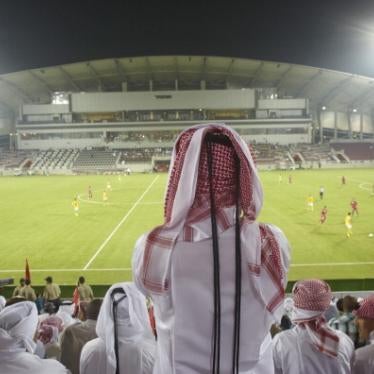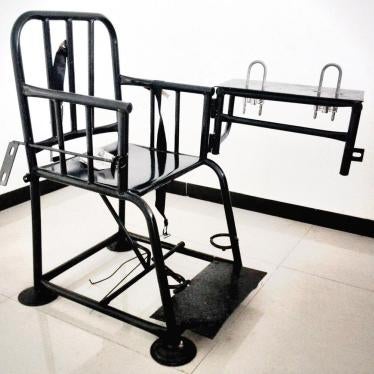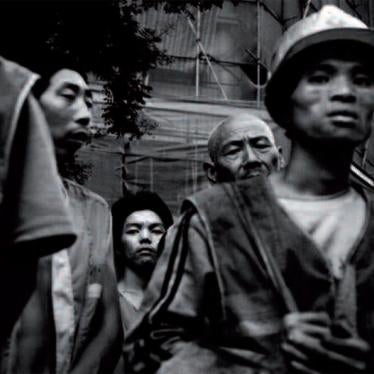The Olympic spirit has come to this: Two authoritarian countries are vying to host the 2022 Winter Games, competing to endure a huge financial strain for the benefit of burnishing their public image. The withdrawal of Oslo in October left Beijing, China’s capital, and Almaty, the largest city in Kazakhstan, as the contenders. They formally submitted their bids to the International Olympic Committee this month.
That helps explain why the president of the International Olympic Committee, the German lawyer Thomas Bach, pushed through landmark human rights reforms at a big Olympic summit meeting in Monaco last month.
For the first time, host countries must sign a contract that requires protections for human rights, labor and the environment. These “international agreements and protocols” are meant to protect against abuses such as Russia’s anti-gay law, passed ahead of last year’s Winter Games in Sochi, and the labor and human rights abuses before and during the 2008 Summer Games in Beijing. These reforms are about to get a rigorous test in the global spotlight — whether the 2022 Games are in China, which welcomed journalists to Beijing in 2008 with a censored Internet, or Kazakhstan, which locks up critics and closes down newspapers.
Over the past decade, Human Rights Watch has documented how major sporting events are also accompanied by human rights violations when games are awarded to serial human rights abusers. Repressive countries promised to respect media and other rights to secure the events, then reneged and relied on international sporting bodies to stay silent.
As these countries prepare for events, forced evictions without fair compensation free up space for the massive new infrastructure construction that Olympics require. Migrant workers are cheated and labor under long hours and sometimes deadly working conditions. Construction leads to environmental and other complaints. Activists who object are silenced or jailed. Beijing locked up critics of the Olympics. In Russia, an environmentalist drew a three-year prison sentence, and members of the feminist band Pussy Riot were beaten and detained, for their protests of the Sochi Games. Given the abuses, is there any hope for change?
If there is the political will to implement them, the contract reforms could improve conditions in countries that host big sporting events. Autocrats are increasingly turning to international sporting events to boost their global standing, so the regulations adopted by their governing bodies might be the only way to make human rights advances in some of the most abusive places.
At Sochi last year, for example, the I.O.C. pressured the Russian government to take action against the theft of wages from workers who helped build Olympic venues and infrastructure. Some 500 companies were investigated, and inspectors found that thousands of workers had been cheated out of more than $8 million in wages. The general director of a top construction company was arrested on suspicion of withholding wages. This action resulted from a specific reform from the 2009 Olympic Congress: a promise that the I.O.C. would intervene in the event of “serious abuses,” including abuses of migrant workers.
In Iran, hard-liners and reformists alike cheer the country’s volleyball successes. A law student, Ghoncheh Ghavami, was jailed in Iran’s notorious Evin prison last year after she protested a ban on women entering a stadium to watch an International Federation of Volleyball World League match. In November, the federation (known as FIVB, the acronym in French) called on the Iranian government to release Ms. Ghavami, and affirmed its commitment to “inclusivity and the right of women to participate in sport on an equal basis.” The federation warned that Iran’s policy could limit its ability to host international tournaments in the future. Ms. Ghavami was released on bail shortly thereafter, but not before a revolutionary court convicted her of “propaganda against the state” and sentenced her to one year in prison. She is appealing.
In 2012, Saudi Arabia allowed two women, at the last moment, to compete at the London Summer Games. But it still forbids sports for all girls in state schools and has no women’s sports federations. The Saudis should win a gold medal in brazenness for sending a 199-member men-only team to last fall’s Asian Games, claiming, “Technically, we weren’t ready to introduce any ladies.”
Human rights and sports crises are not limited to the Olympics. Russia, despite its record of worker abuse, was awarded the 2018 World Cup. This summer, authoritarian Azerbaijan will roll out the welcome mat for the first European Games in Baku, despite escalating repression, including the December arrest of a top investigative journalist.
As Qatar builds an estimated $200 billion of infrastructure for the 2022 World Cup, hundreds of South Asian migrant workers have died working on construction projects. FIFA, the governing body of world soccer, is ripe for institutional reform. In May, it will hold a once-in-a-generation presidential election, in which the current president, Sepp Blatter of Switzerland, will seek a fifth term against stiff competition, including Prince Ali bin al-Hussein of Jordan, who has championed reforms to advance women’s participation. Those candidates should back human-rights-based reforms to the FIFA Charter and set out their position on the human rights, discrimination, corruption and labor crises that have dogged the body.
The Olympic reforms passed in December mean that if future host countries fail in their duty to uphold rights, the I.O.C. is now obliged to enforce the terms of the hosting agreement — including the ultimate sanction of withdrawing the Olympics. And for those who break rules like nondiscrimination, the punishment should be a ban on playing and hosting, as the I.O.C. imposed on apartheid South Africa from 1964 to 1992 and Taliban-run Afghanistan from 1999 to 2002.
Mr. Bach has started the ball rolling, but with abuses mounting around global sporting events, it’s time for other sporting federations like FIFA to begin reforms. Fans, corporate sponsors and the general public are increasingly turned off by human rights violations. The I.O.C. reforms aren’t a panacea, but they represent an important step forward.
Minky Worden, director of global initiatives at Human Rights Watch, is the editor of “China’s Great Leap: The Beijing Games and Olympian Human Rights.”







